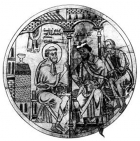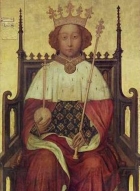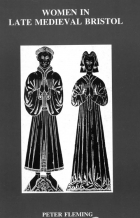Britain & Ireland
Women and social history can be overlooked themes in periods where records tended to focus on money, religion and Kings. While those latter themes are covered in this section so are features on individual women, their relationships with power and how they were able to influence politics and the people around them. Social history is also addressed through the stories of Hermits, soldiers, tax records and revolting peasantry with nobles. Read more
Sort by:
Date (Newest first) | Title A-Z
Show:
All |
Articles |
Podcasts |
Multipage Articles
-

Thomas Parkinson: the Hermit of Thirsk
ArticleClick to view -

Towards Reform in 1809
ArticleClick to view -

Was Richard II Mad? An evening with Terry Jones
ArticleClick to view -

Welsh archers at Agincourt: myth and reality
ArticleClick to view -

William the First and the Sussex Rapes
ArticleClick to view -

Women in Late Medieval Bristol
ArticleClick to view

